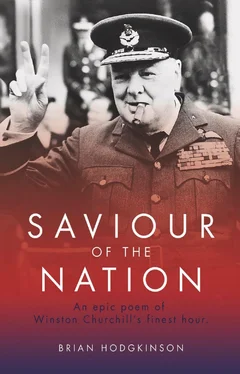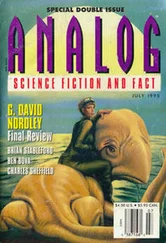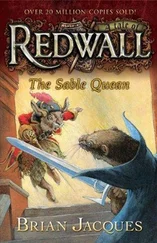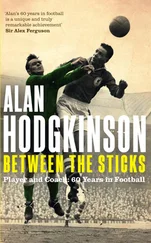Demands were made by Churchill for such facts
With brusque impatience. Any brief delay
Might jeopardise some action or command.
At sea he scorned to rest upon defence.
How could he use the power of Britain’s fleet
To bring to German hearts the dread of war,
And make the aggressor fear he had aroused,
From careless sleep, a new Leviathan?
His fertile mind conceived a strategy
Of startling boldness. By his naval staff
He ordered that a study should be made
Of how to send a force of battleships
Within the Baltic Sea, and threaten there
To bombard German coastlands, stop her trade,
Especially of the vital Swedish ore,
And even make a landing near Berlin.
In Baltic States the sight of British ships
Would hearten those now cowered by Germany.
Would such a stroke make Stalin hesitate
To strengthen his alliance with the Reich?
But naval experts were more sceptical:
They feared the U-boats, and lacked faith in plans
To strengthen ships against the threat of mines.
The Skagerrak might be the Dardanelles.
A second project then attracted him:
To wreck the Germans’ trade upon the Rhine
With floating mines. The French objected,
Fearful lest their factories would be bombed
In swift revenge. Nor would the Cabinet
Give their full assent. Though mines were made,
They were not used before it was too late.
The members of the House were ill at ease
With Chamberlain’s pursuance of the war,
And when he spoke there was but scant applause;
Whilst Churchill sat beside him on the bench,
A Chinese god of plenty, someone wrote,
With indigestion, circular and hunched.
His words were warmly greeted. With a grin,
He turned to the Prime Minister, and said:
‘I have at present no conception how
This odd change in my fortunes has occurred.’
As he went on, he sounded every note
From deep concern to carefree flippancy,
From resolution to sheer boyishness,
And word by word the members’ spirits rose.
For few had seen the temper of the House
So changed abruptly by a single speech.
Later they talked together in the bars:
‘We have now found our leader’, many said.
Meanwhile from Poland came the darkest news.
Stukas and tanks had overcome the Poles,
Whom gallantry alone could not defend
Against the Wehrmacht ’s mechanised assault.
Churchill’s broadcast strove to offer hope:
‘The heroes of Warsaw are not destroyed.
The soul of Poland lives. The rock remains;
Submerged by tidal waves, it still endures.
Though Russia has pursued its interests there,
Her armies make a strong defensive front,
Which Hitler, though her ally, must deplore.
For Russia would not welcome German moves
Towards the Baltic States, nor further east.’
It fell to Churchill, once again, to rid
The sea lanes of the world of German ships.
Concealed in ocean wastes, like beasts of prey,
They struck the slow and ill-armed merchantmen.
New groups were formed to hunt the Germans down.
Into the port of Montevideo
They drove the pocket-battleship, Graf Spee ,
Whose captain, under orders from Berlin,
Soon scuttled her, and shot himself forthwith.
Amidst the gloom of Winter, Churchill’s speech,
Describing how the Graf Spee met her end,
Warmed British hearts with hopes of victory.
On radio his now familiar voice,
With lisping sibilants, and mocking style –
Pronouncing ‘Nazi’ as in ‘marzipan’ –
Endeared him to the people. Few could doubt
The ruthless will his irony concealed.
Royal Navy sailors, victims of Graf Spee ,
Were held aboard the prison ship Altmark .
Evading all pursuers, she had reached
The fjord coast of Norway, on her way
To land the captives in a German port.
British destroyers intercepted her.
She fled to Josing fjord, seeking there,
Amidst the snow-bound slopes of vacant hills,
The safety of a neutral waterway.
But Churchill ordered Altmark to be searched.
A boarding party overcame the crew.
‘The Navy’s here!’ resounded through the ship,
As British sailors clambered onto deck,
Freed from the holds of dark imprisonment.
This incident sent ripples far afield.
In England it enhanced the First Lord’s claim
To prosecute the war aggressively.
In Germany it weighed on Hitler’s mind.
Though pressed by Admiral Raeder, he’d preferred
That Norway should remain a neutral power.
Now Churchill’s action led him to believe
That now she might submit to British plans
To occupy her ports, and interrupt
The flow of iron ore from the Swedish fields,
Upon which German armaments relied.
This latter scheme, indeed, had long appealed
To Churchill’s judgment. When the war began
He had considered how the Swedish ore
Could be denied to German industry.
In Winter, when the northern Baltic froze,
It was supplied from Narvik, down the coast,
Through neutral waters, safely to the Reich.
If these were mined, the ore-ships would be forced
To enter seas patrolled by British ships.
Persistently had Churchill made the case
That rights of smaller countries should not count
Against those measures from which all would gain.
Without the iron their armaments required,
The Germans could not much prolong the war.
Should moral scruples jeopardise those lives
Which would be lost on future battlefields?
But, in the British Cabinet, Churchill’s voice,
Demanding action, eager to engage,
Had failed to move the scruples and the doubts
Of those same men, who not so long before,
Had hailed, in vain, the Munich settlement.
The Russians meanwhile had attacked the Finns
To gain more ground for Leningrad’s defence.
Though Finnish bravery was much admired,
And many people favoured Allied moves
To go to their assistance, Churchill said
The main objective should be Swedish ore.
In London and in Paris long debates
Took place upon this issue. Plans were made
For Allied landings at Norwegian ports,
Anticipating Germany’s response.
Yet nothing was decided. Churchill watched,
Frustrated at the lack of leadership.
In France Edouard Daladier resigned;
To be replaced by Reynaud, one inclined
To fight the war with more audacity.
But still, in England, Chamberlain remained;
Although, when people talked about the war
In offices and factories, shops or streets,
The name of Churchill was upon their lips.
Affronted by the Altmark incident,
The Führer now accepted Raeder’s view
That holding Norway furthered German aims.
By sea and air the Wehrmacht would descend
Upon Norwegian ports and aerodromes.
The basic aim, his War Directive said,
Was that the Wehrmacht should appear to come
As mere protectors of Norwegian rights.
And yet surprise was vital. Any means
To break down all resistance would be used.
This Operation Weser would precede
The opening of offensives in the west.
Both surface ships and submarines could hide
Along the fjord coast. British blockade
Would be no more a threat; and Swedish ore
Would be secured throughout the Winter months.
So when at last the Cabinet gave assent
To mining the Norwegian waterways
And landings to begin at Narvik port,
They found the Germans had forestalled them there,
Читать дальше












